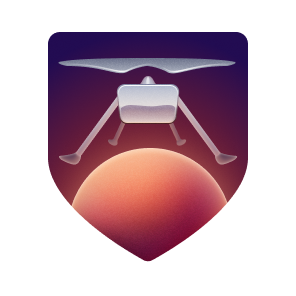-
pythonLangchain chatbot (GPT-3.5) that plays the "20 Questions" game. Gradio app - run locally for now (set your OpenAI API key first).Inspired by this tweet which notes how ChatGPT is unable to play 20 Questions due to lack of private memory.
Adding the memory was easy, the harder part was getting it to validate that the player was asking a yes/no question, and for the bot to reply with only yes/no/sometimes/I don't know. Plenty of rough edges to polish, but have been able to successfully play some games of 20 Questions against the bot!
-
hft2ane 🤗🤖➔🍏🧠
pythonBeginning in early 2023 there has been an explosion of interest in running LLMs locally (e.g. llama.cpp). Recent Apple devices (M1, M2, iPhone) have a Neural Engine chip for accelerating ML model inference. My impression is this was mostly designed for camera/vision applications in the iPhone. But for language models with Transformer architecture it seems some tweaks are needed, hence this demo repo from Apple: https://github.com/apple/ml-ane-transformersApple only implemented one variant of DistilBERT model (showing a 10x speedup), but there are hundreds of interesting models on HuggingFace Hub which could benefit from this.
hft2ane implements more model types, and provides a convenient cli frontend for taking any pre-trained model of a supported type on HuggingFace Hub and exporting it in Neural Engine-optimised format.
-
java(out of necessity more than choice)chuckd is a "schema evolution validation tool" supporting JSON Schema, Avro and Protobuf. It is a cli tool designed to be run as part of a CI/CD pipeline.
In the context of a multi-service application backend you want to be able to validate that only backwards-compatible changes are made to the message schemas which different services use to communicate with each other. So you need a "schema evolution validation tool".
chuckd repurposes some parts of Confluent Schema Registry as a backend-agnostic cli tool, to provide validation only without needing a Kafka cluster.
This project has an extensive build pipeline in GitHub Actions which builds binaries, Docker images, and publishes to Homebrew package manager.
-
ocamlAfter 10+ years of intensive Python work at various companies I was curious to try something different. I was attracted to OCaml as a pragmatic functional language.Spectrum is a library for colour and formatting in the terminal, inspired by the many libs of that sort for Python and also chalk.js
AFAIK it is different from any other OCaml terminal colours lib by leveraging the language's support for styling via format-string DSL, and also providing access to modern 256 and 24-bt colour palettes. It has been an useful learning project, exercising some interesting corners of the language including an ocamllex parser for the DSL and a customer PPX macro-preprocessor.
-
pythonThis library is a port of some of the parser combinators from Haskell's Megaparsec to the Python library parsy.It is surprising how smoothly these translated over, considering the difference between the two languages. I put this down to parsy's clever use of Python generators to mimic Haskell's monadic
donotation.This was a yak I had to shave in order to complete https://github.com/anentropic/python-waterloo ...which is a parser (and refactor tool) to extract unchecked type info from Python docstrings and convert them to checkable type annotations.
-
rust/pythonFor a while I was experimenting with OpenGL graphics in Python (see also https://github.com/anentropic/pyglslify)I wanted a way to introspect the defined inputs and outputs of GLSL shader code. glsl-shaderinfo is a Python library built in Rust using the PyO3 toolchain, leveraging a GLSL parser crate that was superior to anything I could find on PyPI.
Pinned Loading
-
python-waterloo
python-waterloo PublicA cli tool to convert type annotations found in 'Google-style' docstrings into mypy py2 type comments (and from there into py3 type annotations).
-
-
factoryboy-gaendb
factoryboy-gaendb PublicFactoryboy base factories and helpers for Google App Engine ndb models
-
-
rkt-write-thru-hash
rkt-write-thru-hash PublicRacket (mutable) hash-table impersonators, backed by persistent storage.
Racket
-
depop/apiblint
depop/apiblint PublicLinter for .apib blueprint docs, can be run as a pre-commit hook
JavaScript
Something went wrong, please refresh the page to try again.
If the problem persists, check the GitHub status page or contact support.
If the problem persists, check the GitHub status page or contact support.





